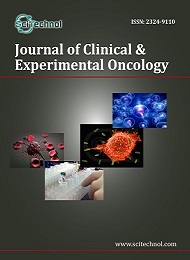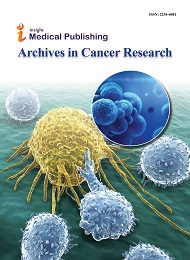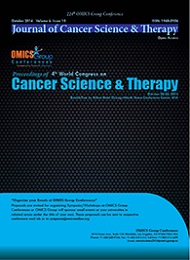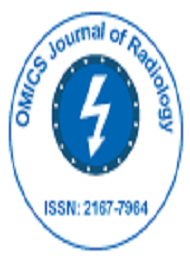Theme: Explore & Expand your knowledge at Oncology Research
Cancer Stem Cells 2021
Conferenceseries Ltd, welcomes all the participants from all over the world. We are delighted to invite you all to attend the “13th International Conference on Cancer Stem Cell & Oncology Research” which is going to be held on May 03-04, 2021. The congressional committee is gearing up for an exciting and informative webinar which include keynote presentations, plenary lectures, young research forum, symposia and oral talks on informative topics, poster presentations and various program for participants from all over the world. We heartily invite participants from all over the globe to take part in 13th International Conference on Cancer Stem Cell & Oncology Research, to share meaningful experience from scholars around the world.
For more information please visit: https://cancerstemcells.insightconferences.com/
Importance and Scope
Cancer is a disease which has a capacity to differentiate rapidly and give rise to less specialized cells. Cancer cells may be capacity to alter normal cells. Cancer is a genetic disease caused by alteration in genes or DNA. Tumor cells can use the immune system to stay alive and grow. However benign tumors are not cancers. Cancer Cells are malignant; they can spread into nearby tissues. When Cancerous cells spread from one place to another body part called metastatic cancer. There are many types of cancer which named for the tissues or organs or cells where the cancer usually formed. Treatment of cancer depends upon the stages of the disease development. Chemotherapy is majorly used in the earlier stages whereas other therapy options such as targeted therapy drugs, immunological therapy drugs are used in late stage. Treatments that work for some cancers don’t work for others and occasionally those treatments simply stop working.
Cancer stem cells 2021 will provide with an exceptional opportunity for the delegates from Universities and Institutes to interact with the world class Researcher and Industry Experts working in the field of oncology.
Why to attend?
Cancer Stem Cells 2021 is a webinar to meet your target market with individuals from around the world focused on finding out about advertising and showcasing, and insightful leaders through the investigation talks and presentations and encourage many novel methods of creation and scale-up of Aquaculture Research. It adds a forum for all stakeholders, huge industrialists in the Cancer and Stem Cells sector, original research, featuring review articles, research and development spotlights, news, commentaries, interviews with keynote speakers and much more, with a prospect to building an international community of Cancer and Stem Cells communication.
Target Audiences
Biomarkers Associations and Societies
Session 1- Cancer, Cancer stem cells and its types
Cancer is a disease which has a capacity to differentiate rapidly and give rise to less specialized cells. Cancer cells may be capacity to alter normal cells. Cancer is a genetic disease caused by alteration in genes or DNA. Tumor cells can use the immune system to stay alive and grow. Tumor cells can keep immune from Killing. Cancer Cells are malignant; they can spread into nearby tissues. When Cancerous cells spread from one place to another body part called metastatic cancer. There are many types of cancer which named for the tissues or organs or cells where the cancer usually formed.
Cancer stem cell evidence declares the presence of the a little population of disease cells with characteristic functions taking into account protection from radio-chemotherapy organized and expanded metastatic ability.
Session 2- Etiology and Prevention
“Prevention is better than cure.” – By Johann Wolfgang von Goethe.
It is extremely hard to understand why one people develop cancerous cells and another doesn’t. But some research and analysis showed that certain risk factors which may increase the chances of cancer. Some of the common risk factors can be avoided such as lifestyle and environmental factors. Most of the researches have shown that the majority of cancers are caused by poor lifestyle like unhealthy diet, smoking and obesity. Not all cancers are preventable but we can slow down the risk of cancer by applying healthy habits, such as exercise regularly, quit smoking, limited alcohol intake etc.
There are four different Stages of Cancer, which include Stage 0 – when no cancer, but some abnormal cells that may give rise to cancerous cells, Stage 1 – When Cancer is located in small area, Stage 2 & 3- When Cancerous cell has spread to larger area including tissues and lymph nodes, and Stage 4 When Cancerous cell has spread to many parts of the body.
Session 4 - Cancer Diagnosis and Treatment
Cancer is the major causes of death in the world. Most of the cancer can be cured if it detect at earlier stage. There are many approaches to cancer diagnose and treatment cancer that will depend on the type of cancer and stage. Cancer diagnose approaches can be more than one. You can determine diagnosis what best is for depend on your own risk. The main aim of cancer treatment is to kill or destroy cancerous cells. The treatment options are surgery, chemotherapy or Radiation etc. Cancer treatments have many objectives, like Primary treatment, Adjuvant treatment and Palliative treatment.
Session 5- Endocrine and Neuroendocrine Cancer
The nervous system is common regulatory system in the human body. It is usually connected to the brain and the spinal cord through various nerves. Neuroendocrine cancers are type of cancer which rises in specialized cells. These types of cancer are rare but can occur anywhere in the body. Some cancerous cells grow rapidly and some grow slowly in the body. Most common neuroendocrine cancer occurs in lungs, pancreas, appendix, intestines and rectum. Neuroendocrine cancer may be occurs in thymus, thyroid gland, pituitary gland and adrenal gland. Neuroendocrine cancer can be classified by site of formation.
Session 6- Cancer Immunology and Immunotherapy
Cancer Immunology is the branch of biology in which explore the interaction between the role of immune system or responses and progression and development of cancer. Immunotherapy or biological therapy is the treatment of cancer in which doctors boosts the natural defenses to fight cancer. There are the three classes of immunotherapy: Immune checkpoint blockade, cellular (t-cell) transfer therapy, Monoclonal antibody and vaccination. Immunotherapy causes side effects which include pain, redness and itchiness etc.
Session 7- Cancer Drug Development
Drug Development is the lengthy procedure because it has ability new drug must be identified and assessed in preclinical and clinical trials. Drug development medication can happen some different ways. If scientist identify new drug by examine numerous compounds in a laboratory procedure for effective ways, like killing or destroying cancerous cells. Cancer drug development is to target DNA or protein. Currently researchers are looking for whole new set of targets. Development of anti-cancer drug is evolving a step towards the invention of novel therapeutics.
Current concept of understanding the kind of cancer invent to conceptual drug design, in which new substance is developed to target a specific disease procedure. At a time, factual medication are found to be having an effectual effect against a various type of cancerous cells. New discovery lead to alteration in designs how medication reach cancerous cells present among the body, thus leading to the capacity to develop a substance. At starting procedure is referred to target and lead identification, validation, and optimization.
Session 8- Artificial Intelligence and Oncology
Artificial Intelligence means human like intelligence performed by a computer, robot, or other machine. There is various kind of application and uses of artificial intelligence in the field of medical oncology and basic cancer research like in diagnosis, screening, imaging, drug discovering, clinical trials, pain management and treatments etc. Recently technological uses and application of artificial intelligence in oncology are endless. Artificial Intelligence in Oncology covers a huge range of application in cancer management. A new artificial intelligence (AI) system created that not only matches tumors to the best drug combinations, but does so in a way that makes sense to humans. Artificial Intelligence is expecting the best approach to cancer treatment.
Genomics is the study of genomes. It is a field of biology which involve the structure, mapping, evolution, and editing of genomes. The genome is the whole set of DNA, which include its genes. The study of cancerous genomes has disclosed the abnormalities in DNA or genes that leads to development and growth in various ways. The invention of cancerous causing genetic and epigenetics alteration in tumor has enabled the development of therapies which target there alteration as well as treatment and diagnosis test which identifies patients who may effective from these therapies.
Cancer syndromes is the genetic disorder in which hereditary genetic alteration in single or multiple genes predispose the affected of single to the development of tumor. Cancerous syndromes display a high risk of tumor. Hereditary genetic alteration play important role in approximately 5% to 10% of all tumors. These epigenetic alterations happen at different levels, which involve decreased mass degrees of the center histones, adjusted examples of histones post-translational changes and DNA methylation, supplanting of authoritative histone along with histone changes and modification non-coding RNA articulation, in the process of organismal maturing and replicative senescence.
Session 11- Computational Data mining in Cancer
Computational data mining has an ability to understand the difficulties of cancerous-related data has been caused by the application of computer and data sciences, which involve data mining, analytics, machine learning and benefits in imaging technology and probe creation. Computational modeling and simulation are orderly and cheaper tools which able to identify important temporal patterns, characteristic distinct molecular character of tumor states and other related aspects, which include tumor identification and heterogeneity, progression and metastasis, and medication resistance.
Session 12- Tissue regeneration and Oncology
Tissue Regenerative medication is the model of renewal and restoration of damaged or destroyed tissues. As the segment for organ development and tissue restoration, stem cells have different and vast-ranging ability, thus describing their ability application and uses to tissue regenerative medication. The identification that compatible model of molecular procedure drive organ development and after birth tissue regeneration has remarkable implications for a different of cytological diseases beyond renewal biology. The examination analysis that organ-specific stem cells acquire all of the changed cells within a given tissue has led to the acceptance of a stem cell inheritance pattern for tissue development, maintenance, and repair. Extending the tissue stem cell hierarchical model to tissue tumorigenesis may transform the pattern in which we form a concept of cancer medication. A basic understanding of stem cell biology is dominant to stay knowledgeable of this mixing technology and the go along with discovery in this with field the ability in clinical application and uses.
Session 13- Vaccines and Biomarkers
Vaccines are medication which helps our body to fight against disease. Vaccine can train are immune system to search and damage or destroy harmful micro-organisms, germs, and cells. There are various kind of vaccines that we receive throughout our life to prevent common sickness or illness. There are also vaccines available for tumor or cancer. There are vaccines which prevent tumor and treatment of cancer. There are vaccinations which prevent people from getting particular cancers caused by viruses. This type of vaccine will only work if a person gets the vaccination before they are infected with the virus.
Research into the molecular biology of hepatocarcinogenesis has known some biomarkers, which could offer additional evidence in order to better comprehend the biology of HCC. An abundance of biomarkers have been shown to have possible analytical implication and a wide variety of molecular markers have been verified to be excellent diagnostic tools for HCC yet it is hard to expose HCC with a single biomarker. Then, marks of a mix of biomarkers might be more imperative for the finding, arranging and visualization of HCC.
Session 14- Coronavirus and Cancer
Coronaviruses are the large group of viruses. SARS-CoV- 2 is a novel which caused a pandemic of disease named COVID-19, anyone who expose to infection and developing COVID-19. Recently, it not known that history of cancer patient increases the risk for some sickness or illness from COVID-19. Cancer and its treatment can weaken immune system and reduce your potential to against fight infections. The immune system protects our body against illness and infection caused by viruses like COVID-19.
Session 15- Cancer Nanotechnology
Cancer nanotechnology is the application and uses of Nano meter product towards the identification, diagnosis, and treatment of cancer. The unique properties of nanomaterial and the connection with cells in and around the tumor micro-environment are enabling new aspects in cancer biology and therapy. The huge of applications of nanotechnology towards cancer continues to expand with exciting new developments in combination treatments, cancer immunotherapy, molecular detection, and imaging.
Scientist will provide a unique forum where scientists at every stage of their career can share unpublished, cancer discovery made possible by the use of nano particles or nano-materials. This meeting will particularly focus on two ends of the spectrum in cancer research: deepening our fundamental understanding of the interactions of nano -materials with tumors and the laboratory favourable environment, and translation of cancer nanotechnology out of the lab and into the clinic. The event will bring together a lively group of exceptional scientists in order to
(i) share cutting-edge discovery in cancer nanotechnology by expertise representing the wide range of biological sciences, engineering, and medication;
(ii) Discussion, presenting of ideas, and promote collaborations,
(iii) Enhance growth of fresh researcher during promoting variety.
Genetics is the field of biology that looks at how character passed down from parents to their children through genes. Alteration in genes called mutation, which play an important role in the building blocks of tumor. Alteration in gene can cause a cell to make proteins that affect cell growth and division into new cells. This type of alteration in genes leads to out of control cells, which can cause cancer
Session 17 – Cancer Misconception and myth
It’s important to range the awareness about cancer and crucial to stay away from myth and misconceptions. The internet full of myths and misconceptions related to cancer which stop patient from getting diagnosed on time and availing treatments.
This event tries to present cancer myths and misconceptions vs facts to make you aware of this disease.
Session 18 – Current Application and Future of cancer
The main agenda is to focus on new translational advances in the treatment of cancer as well as provide updates of predictable therapies for the number of the most common tumor types. The major emphasis will be clinical features of cancer treatment in this century with debate of important scientific advances underlying the novel methods still in preclinical development.
Cancer patient Nurse is a professional who take cares of Cancer patients. Cancer patient nursing care could be defined as the expert care and completing the needs of patients during the time of their disease, while may involve some screening methods and preventive measures that should be taken care of patient care, fatigue, infection etc.
The worldwide cancer drugs market was valued at $97,401 million in 2017, and is expected to reach at $176,509 million by 2025, registering a CAGR of 7.6% from 2018 to 2025.
Cancer has a global occurrence worldwide, which has led to rise in mandate for cancer drugs. The key factors that are liable for the growth of the cancer drugs market are surge in cancer research, rise in aged population worldwide, and increase in number of relationships between pharmaceutical companies. Additionally, rise in healthcare expenditure worldwide is expected to boost the market expansion.
Additionally, high market growth potential in developing populations, rise in number of pipeline products, and increase in demand for personalized medicines are predictable to create new prospects for the market players during the estimate period. However, adverse effects associated with the use of cancer drugs and high costs related with cancer drug development are the major factors that slow down the growth of the market.
According to drug class type, the targeted therapy section engaged the largest cancer drugs market share in 2017. This is due to the capacity of targeted therapies to kill only malignant cells, higher effectiveness and higher survival rates associated with their use. The immunotherapy section is predictable to show fastest growth during the estimate period, registering a CAGR of 10.4%. This is attributed to surge in incidence of cancer worldwide and high medical needs in some countries. Immunotherapy drugs are broadly accepted as a perfect treatment option as these drugs are possibly harmless to the other living cells of the body which makes them less toxic as compared to other modes of cancer therapies. Moreover, continuous efforts in research and innovation to design and develop new immunotherapeutic for the treatment of numerous cancer types serves as a key feature for the growth of the cancer drugs market.
According to suggestion, the prostate cancer part engaged the largest cancer drugs market share in 2017. This is due to presence of geriatric population. The lung cancer part is predictable to display fastest growth during the forecast period. This is due to technological developments in the field of cancer diagnostics and rise in the consciousness related to the early diagnosis of cancer.
Cancer Stem Cells 2021 Highlights includes:
- IOCM Certification
- One on One Meeting with Eminent Speakers from 40 Countries
- Live Streaming of the conference
- Keynote sessions by world’s most eminent researchers at Cancer Stem Cells and Oncology
- Top Industries Representation
- Thought provoking Symposia’s and Workshops
- Preconference workshops in all major countries
- Nominations for Best Poster Award
- Outstanding Young Researcher Award
- Group Registration benefits
Major Cancer Associations across the Globe:
American Association for Cancer Research
American Brain Tumour Association
American Society of Paediatric Haematology/Oncology
American Childhood Cancer Organization
American Society of Clinical Oncology
Australasian Lung Cancer Trials Group
International Cancer Research Partnership (ICRP)
American Association for Cancer Research (AACR)
American Society of Clinical Oncology (ASCO)
International Agency for Research on Cancer (IARC)
Cancer Society of New Zealand
Irish Cancer Society
Australian Cervical Cancer Foundation
Australian Prostate Cancer Research
The European Cancer Organization (ECCO)
Major Medical Universities: Worldwide
University of Minnesota
Mayo Medical School
Pittsburgh School of Medicine
Yale University
University of Oxford Stanford University
UNC School of Medicine
Karolinska University
The University of Tokyo
National University of Singapore (NUS)
University of Hong Kong (HKU)
Peking University
Seoul National University (SNU)
National Taiwan University (NTU)
Osaka University
Tsinghua University
The Chinese University of Hong Kong (CUHK)
The Hong Kong University of Science and Technology (HKUST)
KAIST - Korea Advanced Institute of Science and Technology
Shanghai Jiao Tong University
Nanyang Technological University (NTU)
Tokyo Medical and Dental University
Kyushu University
Nagoya University
University of Science and Technology of China
Pohang University of Science and Technology (POSTECH)
Korea University
Universiti Malaya (UM)
University of Tsukuba
University of Delhi
Conference Highlights
- Cancer, Cancer stem cells and its types
- Etiology and Prevention
- Stages of Cancer
- Cancer Diagnosis and Treatment
- Endocrine and Neuroendocrine Cancer
- Cancer Immunology and Immunotherapy
- Cancer Drug Development
- Artificial Intelligence and Oncology
- Cancer Genomics
- Cancer Syndromes
- Computational Data mining in Cancer
- Tissue regeneration and Oncology
- Vaccines and Biomarkers
- Coronavirus and Cancer
- Cancer Nanotechnology
- Cancer Genetics
- Cancer Misconceptions and Myths
- Current Application and Future of Cancer
- Cancer Nursing
To share your views and research, please click here to register for the Conference.
To Collaborate Scientific Professionals around the World
| Conference Date | May 10-11, 2021 | ||
| Sponsors & Exhibitors |
|
||
| Speaker Opportunity Closed | Day 1 | ||
| Poster Opportunity Closed | Click Here to View | ||
Useful Links
Special Issues
All accepted abstracts will be published in respective Our International Journals.
Abstracts will be provided with Digital Object Identifier by







